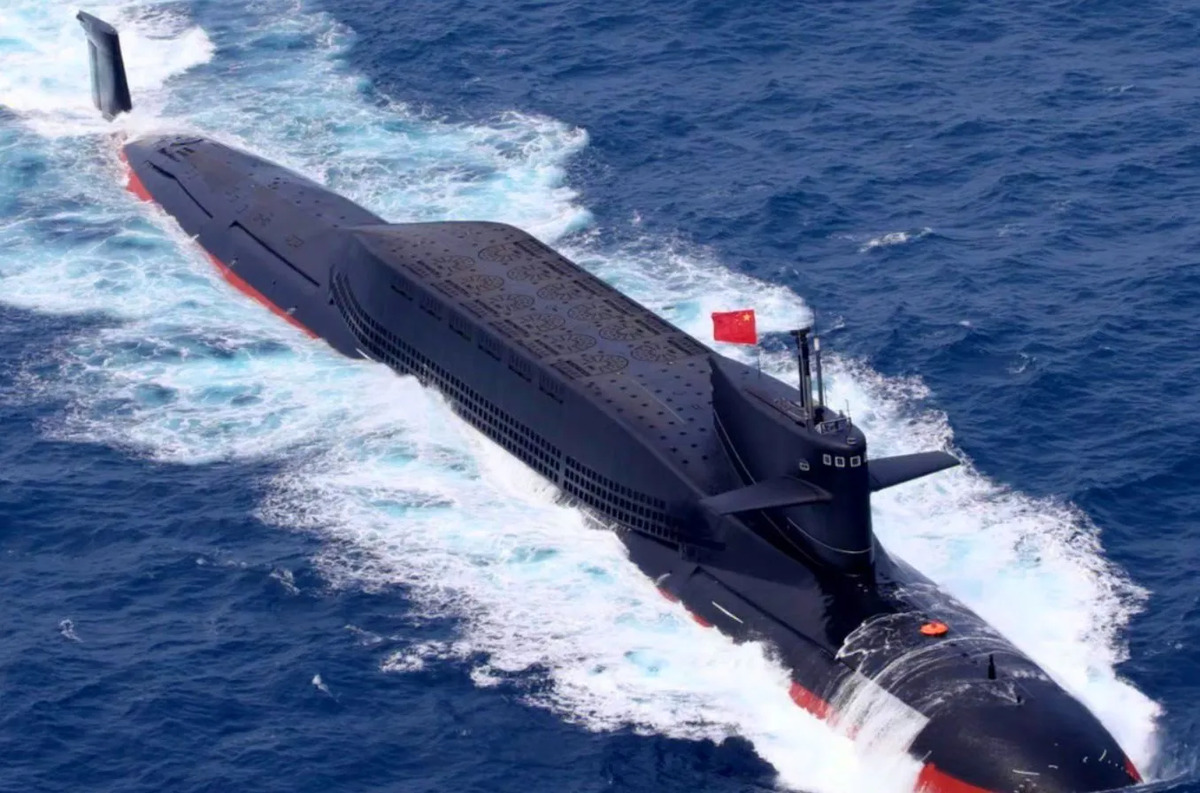US officials recently suggested that the sinking of a Chinese Zhou-class nuclear submarine can be attributed to a significant operational mishap involving an “open hatch.” While this claim has sparked considerable debate, questions arise about the motivations behind such allegations, particularly given a history of similar claims against other nations like India that later proved unfounded.
In June, satellite imagery displayed multiple large cranes engaged in salvage operations on the partially submerged Type 041 Zhou-class submarine located in Wuhan, signaling a substantial setback for the People’s Liberation Army Navy (PLAN). The alleged cause of the incident, an “operator error” linked to an open hatch, raises important questions about the training and safety protocols that are in place within the Chinese naval forces. This is particularly relevant as the PLAN continues to enhance its submarine capabilities, with the ongoing construction of new Shang III cruise missile-firing submarines.
Current reports indicate that these Shang III vessels are undergoing sea trials and will likely be operational within the next couple of years. This development illustrates China’s growing prowess in underwater warfare, marking the Shang III as the first class of cruise missile submarines in its inventory.
Officials discussing the Zhou-class submarine incident confirmed that the open hatch was the primary reason for the flooding, but cautioned against interpreting this error as evidence of a systemic failure within the Chinese submarine construction process. Former US Navy submarine warfare officer Thomas Shugart weighed in on this topic, highlighting that the circumstances surrounding the open hatch might not be as straightforward as they appear. He pointed out that hatches are generally situated above the waterline, and a situation involving trim or draft changes during maintenance could potentially lead to flooding if an open hatch were to come into contact with water.
Shugart drew parallels with a past incident in US Navy history concerning the USS Guitarro, which sank during construction due to independent civilian teams creating an imbalance that led to flooding. He emphasized that if the Zhou-class submarine’s sinking did involve such complex dynamics, it would further necessitate an investigation into the underlying issues—potentially exposing gaps in training and operational protocols.
Nevertheless, military analysts remain skeptical about the open hatch explanation, noting that China, equipped with the world’s largest naval fleet, is unlikely to make such a grievous mistake. They uncannily recalled similar allegations that were directed at the Indian Navy following a mishap in 2017, which later proved to be inaccurate.
A retired Indian naval officer expressed doubts about the possibility of a submarine sinking due to an open hatch, as many compartments would typically be occupied during operations, bearing witness to strict safety protocols. He underscored that naval crews are among the most qualified personnel in any military service, making such oversights unlikely.
The incident draws comparisons to a 2017 event involving India’s indigenous submarine, INS Arihant, which reportedly sustained damage when a hatch was accidentally left open. Initial reports led to widespread scrutiny of the Indian Navy’s operational standards, only for further investigation to reveal that no hatches existed in the cited area capable of allowing seawater ingress.
Critics have now begun to discern a pattern: sensationalized narratives that undermine the professionalism of naval forces—narratives that echo Edward Said’s concept of “Orientalism,” where the West often disparages the East. Such perceptions not only misrepresent the operational capabilities of China and India but also ignore the critical need for objective assessments of their naval capabilities.
While the implications of these incidents necessitate an unbiased inquiry to bolster accountability and safety within naval operations, they also challenge the narrative that Eastern military forces display inherent incompetence. This situation serves as a crucial reminder of the importance of rigorous training and the continuous evaluation of safety protocols in the face of operational complexities inherent to modern naval warfare.













